Tuesday, November 4
Seminar Room M:3170-73 Dept. of Automatic Control, M-building, LTH
15:00 - 16:00
Perception and Planning for Dual-arm Robotic Manipulation of Multi-Deformable Linear Objects in Wire Harness Assembly
Pablo Malvido Fresnillo
Postdoctoral Researcher at Tampere University (Finland)
Abstract
This talk presents advances in robotic perception and planning aimed at addressing these difficulties. On the perception side, a vision-based system is introduced to estimate the shape of MDLOs under challenging conditions, including occlusions, constant overlaps, and cluttered backgrounds. On the planning side, a set of dual-arm motion coordination functions is developed, enabling robots to manipulate DLOs by synchronizing their movements according to different policies. This allows precise shape control without relying on external supports.
Additionally, to bridge the gap between advanced methods and practical usability, two complementary technologies are presented: a task-level programming by demonstration (PbD) framework that captures and digitizes human manipulation knowledge, and an intuitive graphical user interface (GUI) for controlling and monitoring ROS-based robotic systems. The integration of these components into a unified robotic platform is demonstrated through wire harness assembly, showcasing both the effectiveness of the proposed solutions and their potential for broader applications.
Biography
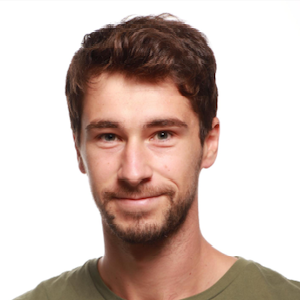
16:00 - 17:00
Data-driven manipulation and control of deformable objects
Ignacio Cuiral Zueco
Researcher, University of Zaragoza (Spain)
Abstract
Biography

Thursday, November 6
Seminar Room M:3170-73 Dept. of Automatic Control, M-building, LTH
10:00 - 11:00
Hierarchical Bio-Inspired Learning for Legged Locomotion
Guillaume Bellegarda
Postdoctoral Researcher at École Polytechnique Fédérale de Lausanne (Switzerland)
Abstract
Biography
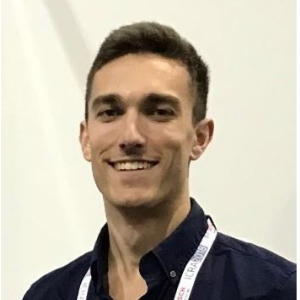
11:00 - 12:00
Scaling Robot Skill Acquisition through Prior Knowledge
Quantao Yang
Postdoctoral Researcher, KTH Royal Institute of Technology (Sweden)
Abstract
Biography
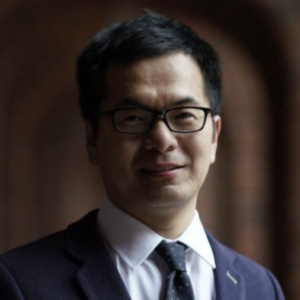
Tuesday, November 11
Seminar Room M:3170-73 Dept. of Automatic Control, M-building, LTH
15:00 - 16:00
From Ego to Eco-System: Perception & Fusion for Autonomous and Connected Mobility
Simone Mentasti
Researcher at Politecnico di Milano (Italy)
Abstract
We begin with the context, our autonomous platform, sensing suite, and constraints, and show how vision/LiDAR/radars fusion underpins three pillars:
- lane and road-marking detection that remains stable under wear, rain, and glare
- state estimation lavaraging sensor fusion in GNSS-denied scenarios
- obstacle detection & multi-object tracking with robust association from lidars cameras and radars
We then widen the lens to mapping as the backbone: high-fidelity maps for localization, but also dataset generation and digital twins. I’ll detail how occupancy-level fusion and static-vs-dynamic segmentation feed repeatable evaluation loops, and how the digital twin (CARLA) lets us stress-test synchronization, calibration drift, occlusions, and bandwidth limits in safety-critical edge cases.
Building on that, we step into V2X cooperative perception: exchanging tracklets or occupancy summaries rather than raw data, aligning agents in space and time, and fusing confidence to see beyond line-of-sight. Finally, we land in the real world with infrastructure-side perception, roadside cameras/LiDAR for early hazard discovery, near-miss analysis, and increased road safety.
Biography
In addition to his research at AIRLab, Simone collaborates with Politecnico’s Mechanical Engineering Department on urban mobility and self-driving car projects. Since 2022, he has also been working in the Smart Eyewear Lab, a Joint Research Center between EssilorLuxottica and Politecnico di Milano where he contributes to the design and development of next-generation smart eyewear technologies.
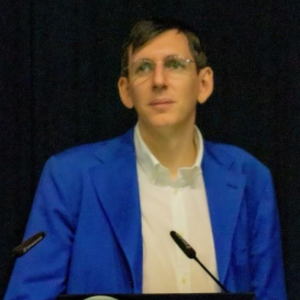
16:00 - 17:00
Scalable and Human-Aware Multi-Robot Coordination in Dynamic Environments
Maryam Kazemi
Abstract
Multi-robot systems are becoming increasingly important in real-world applications, such as intralogistics or autonomous delivery, public services, etc., where multiple robots collaborate to complete tasks efficiently. While these systems hold great promise, operating them in environments shared with humans introduces significant challenges: people move unpredictably; spaces become crowded leading to inefficiency and safety risks. Traditional multi-robot systems typically assume static environments and rely on centralized planning, reacting to humans only in real time, which further increases delays, inefficiency, and safety risks.
My research addresses this challenge by developing methods for human-aware, decentralized, and scalable multi-robot coordination. We model long-term human movement patterns using Maps of Dynamics (MoDs), predict short-term crowd behavior with lightweight neural networks, and enable decentralized task allocation under partial observability using graph-based reinforcement learning.
Through these advances, robot teams can dynamically adapt to humans and collaborate efficiently in real-world environments. The talk will cover the underlying concepts, key methods, and experimental results that demonstrate improvements in task completion, safety, and scalability, highlighting a path toward truly autonomous and socially-aware multi-robot systems.
Biography
Maryam Kazemi is a doctoral researcher at the Electrical engineering and Automation Department at Aalto university, Finland. She is part of the mobile robotics group conducting research in the field of Multi Robot systems (MRS). Her research objective is to develop safe and efficient coordination algorithms for MRS in human-shared, partially observable and communication limited environments. Her research interests include decenteralized control, multi-agent reinforcment Learning, and the integration of learning based and model based planning.
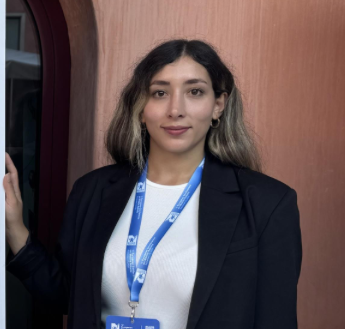
Thursday, November 13
Seminar Room M:3170-73 Dept. of Automatic Control, M-building, LTH
10:00 - 11:00
Dynamic manipulation of deformable objects, past work and challenges
Adriá Colomé
Research Scientist at the Institut de Robòtica i Informàtica Industrial (Spain)
Abstract
Biography
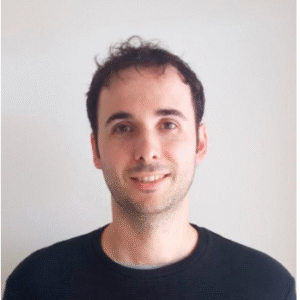
11:00 - 12:00
Online robot learning in hardware: Challenges and opportunities
Thomas Berrueta
Postdoctoral Researcher at CALTECH (USA)
Abstract
Biography
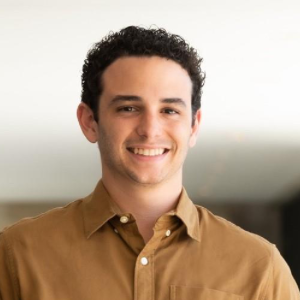
Monday, November 24
Seminar room M:M (M:3187) Dept. of Automatic Control, M-building, LTH
11:00 - 12:00
Feedback Models for Robotic Cloth Manipulation
Oriol Barbany
Abstract
Deformable objects like textiles, cables, and soft solids are ubiquitous, being found in daily tasks such as laundry and bed making. Manipulating garments is especially challenging because they are underactuated and exhibit a highly non-linear mechanical response. Furthermore, the cloth’s state is difficult to perceive and represent due to its high degrees of freedom, self-occlusions, and inherent uncertainty, which significantly hinders the development of effective control policies. This seminar covers a collection of works focused on solving the cloth manipulation problem using data-driven feedback solutions. We will first demonstrate how cloth perception is enhanced by reducing state uncertainty through the integration of physics- and data-based priors, as well as by leveraging additional modalities like language and depth. Finally, the talk will review the process of learning robust robot policies with these enhanced perception models and discuss the role that simulators play.
Biography
Oriol Barbany is a PhD student in the ELLIS PhD & PostDoc program at the Institut de Robòtica i Informàtica Industrial (IRI), a joint center of UPC and CSIC, supervised by Prof. Carme Torras and Dr. Adrià Colomé. My research is at the intersection of robotics, computer vision, and machine learning. During my PhD, I visited EPFL as a guest of Prof. Amir Zamir and completed two internships at Amazon in California. I previously interned at Amazon in Berlin and at Logitech in Switzerland. I hold an MSc in Data Science from EPFL and a BSc in Telecommunications Engineering from UPC.

Monday, December 1
Seminar Room M:3170-73 Dept. of Automatic Control, M-building, LTH
10:00 - 11:00
In-Hand Slip-Aware Object Manipulation
Gabriel Arslan Waltersson
PhD Student at Chalmers University of Technology (Sweden)
Abstract
In this seminar, we present our approach to slip-aware manipulation using simple parallel grippers. Although these grippers offer only a single degree of freedom (open/close), their capabilities can be significantly enhanced through tactile perception, fast actuation, and accurate contact modeling. We will discuss how hardware design, sensing, control algorithms, learning, and friction modeling can be integrated into an architecture that enables in-hand manipulation without relying on external sensing.
Biography
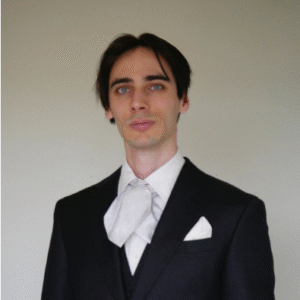
11:00 - 12:00
Scalable and Generalizable Robot Learning: from Simulated to Real-World Applications
Gabriele Tiboni
Postdoctoral Researcher at JMU Würzburg and Pearl Lab at TU Darmstadt (Germany)
Abstract
Biography

Tuesday, December 2
Seminar Room M:3170-73 Dept. of Automatic Control, M-building, LTH
15:00 - 16:00
Achieving Coordination with Multiple Heterogeneous Agents
Martina Lippi
Assistant Professor, Roma Tre University (Italy)
Abstract
Biography
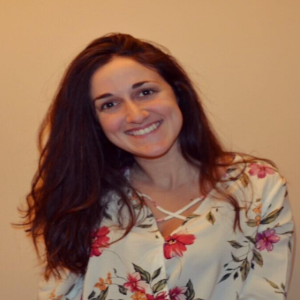
16:00 - 17:00
Adaptive Sensor Fusion for Autonomous Driving in Harsh Weather Conditions
Thu Ngo
Postdoctoral Researcher, Halmstad University (Sweden)
Abstract
In autonomous driving, the perception system plays a crucial role in enabling vehicles to perceive and interpret their surroundings. This comprises a suite of sensors, including a camera, lidar, radar, and an advanced algorithm to identify and track objects such as pedestrians, vehicles, road signs, and traffic lights. However, adverse weather conditions such as rain, snow, fog, and low-light environments can significantly degrade the sensor performance and challenge the reliability of the perception model. This seminar presents the recent advances in adaptive sensor fusion techniques to enhance the robustness and safety in such challenging conditions. We discuss dynamic fusion strategies across data, feature, and decision levels, including sensor weighting, multimodal learning, and domain adaptive fusion. In addition, we introduce the proposed datasets tailored for adverse weather conditions. Case studies from recent research illustrate how adaptive fusion techniques improve object detection, semantic segmentation, and multi-task learning under weather-induced disturbances. Finally, the seminar highlights emerging research directions and practical considerations for real-world deployment of adaptive fusion systems in autonomous vehicles.
Biography
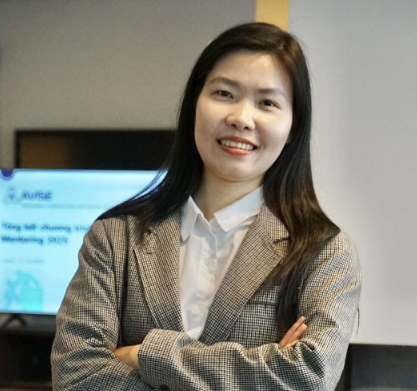
Wednesday, December 3
Seminar Room M:3170-73 Dept. of Automatic Control, M-building, LTH
10:00 - 11:00
Learning by Demonstration with Dynamic Movement Primitives: Adaptation, Safety and Applications
Leonidas Koutras
PhD student, Aristotle University of Thessaloniki (Greece)
Abstract
Learning by demonstration (LbD) via kinesthetic guidance involves a user demonstrating a task by physically guiding the robot. A popular method for LbD is Dynamic Movement Primitives (DMP) which can be trained even with one demonstration to learn complex motion patterns. DMP act as trajectory generators, possessing spatial and temporal scaling properties, as well as the ability to dynamically adapt to external disturbances via the inclusion of coupling terms. The introduction of robotic systems to dynamic, human centric environments necessitates successful motion adaptation, characterized by predictability and safety. Safety is related to both avoidance of the human motion, as well as compliance in case of unintentional contact. In this talk advancements on DMP are going to be discussed including a formulation in the orientation space, adaptation to novel and dynamic execution conditions as well as control methods to utilize and enhance DMP for robotic applications like collaborative assembly or mechanical cutting.
Biography
Leonidas Koutras is a PhD candidate at the Automation and Robotics Lab, Department of Electrical and Computer Engineering of the Aristotle University of Thessaloniki.
His research interests include learning by demonstration and adaptation of complex robotic behaviours in dynamic environments, applications of differential geometry in robot control and robotic learning, control of bimanual robots for non-prehensile manipulation tasks, mechanical cutting executed by robotic manipulators and attitude control.
He has experience working as a researcher at Horizon 2020 and Horizon Europe projects. He is an IEEE Member in RAS and CSS.

11:00 - 12:00
Learning Failure Prevention Skills for Safe Robot Manipulation
Abdullah Cihan Ak
PhD student, Istanbul technical University (Turkey)
Abstract
Robots are more capable of achieving manipulation tasks for everyday activities than before. However, the safety of manipulation skills that robots employ is still an open problem. Considering all possible failures during skill learning increases the complexity of the process and restrains learning an optimal policy. Nonetheless, safety-focused modularity in the acquisition of skills has not been adequately addressed in previous works. For that purpose, we reformulate skills as base and failure prevention skills, where base skills aim at completing tasks and failure prevention skills aim at reducing the risk of failures to occur. Then, we propose a modular and hierarchical method for safe robot manipulation by augmenting base skills by learning failure prevention skills with reinforcement learning and forming a skill library to address different safety risks. Furthermore, a skill selection policy that considers estimated risks is used for the robot to select the best control policy for safe manipulation. Our experiments show that the proposed method achieves the given goal while ensuring safety by preventing failures. We also show that with the proposed method, skill learning is feasible and our safe manipulation tools can be transferred to the real environment.
Biography
Abdullah Cihan Ak is a Ph.D. candidate and research assistant at Istanbul Technical University, where he also works as a researcher in AIRLAB. He received his B.Sc. and M.Sc. degrees from the Faculty of Computer Engineering and is expected to complete his Ph.D. in late 2025.
His research focuses on robot skill learning in household environments, with an emphasis on failure prevention. The goal of his work is to develop reinforcement learning based methods that enable robots to learn skills capable of preventing failures, making them safer and more accessible for everyday human use.
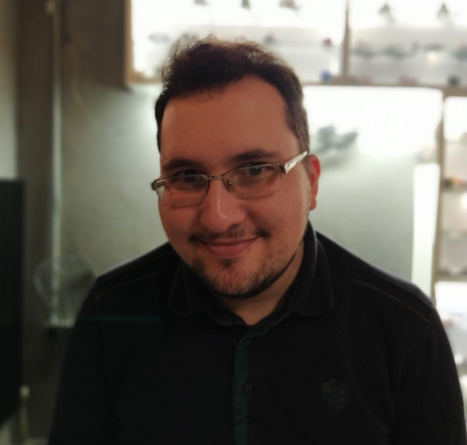
Thursday, December 4
Seminar Room M:3170-73 Dept. of Automatic Control, M-building, LTH
13:00 - 14:00
Safe and Efficient Structured Learning for Robotics
Raffaello Camoriano
Assistant Professor at Politecnico di Torino, Affiliated Researcher with the Istituto Italiano di Tecnologia (Italy)
Abstract
In this talk, we explore recent works for efficient and structured learning in robotics, covering how structured prediction enables imitation and model learning for robotic manipulation and humanoid robot locomotion. To conclude, I will also present recent works on incremental learning for robotic prosthetics and avenues for future research in this domain.
Biography

14:00 - 15:00
Machine learning for scaled autonomous racing and beyond
Piotr Kicki
Postdoctoral Researcher at IDEAS Research Institute, Assistant professor at the Institute of Robotics and Machine Intelligence at Poznan University of Technology (Poland)
Abstract
Biography

